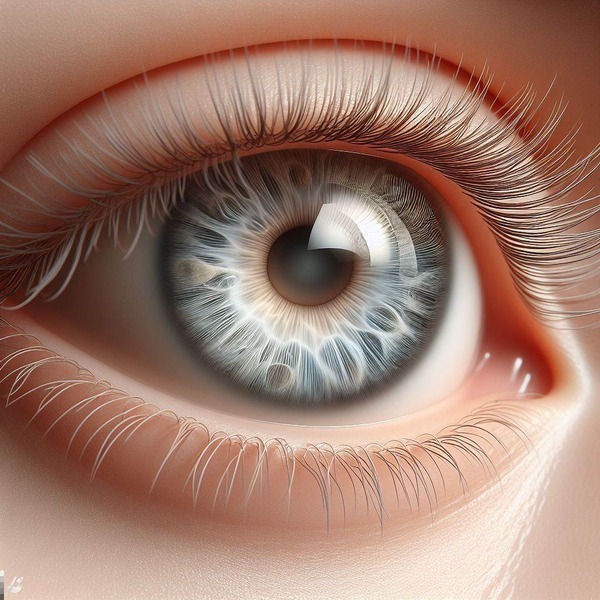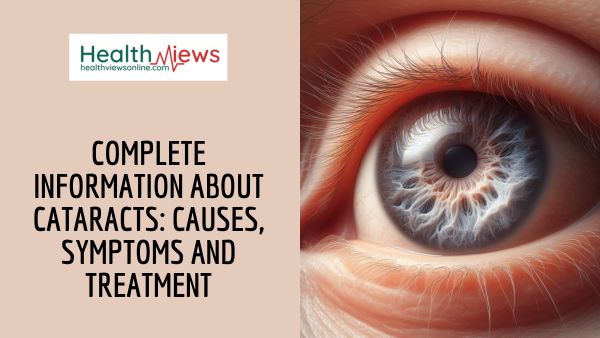What are Cataracts?
Cataracts are cloudings of the lens of your eye that cause vision alterations. A cataract can develop in one or both eyes at the same time. The lens of your eye is made up of typically clear tissue that focuses light onto your retina, which is a layer of nerve cells that lines the rear wall of your eye. Light is turned into nerve signals in your retina, which send information to your brain.
Although cataracts are considered as a disease that can often improve with treatment, they are also a common, even normal, aspect of ageing. Over 50% of Indians will have experienced at least one cataract by the age of 70.
Also, Read Virtual Autism: A New Threat in Children Aged 0 to 3 Years
Different Types of Cataracts
- Nuclear cataracts – The most common type of cataract that physicians see are nuclear cataracts, also known as nuclear sclerotic cataracts. They form in the nucleus, which is located in the centre of the lens.
- Cortical cataracts – They form on the outside edge of your lens, known as the cortex.
- Posterior subcapsular cataracts – These form inside the back of your lens capsule, which is the part of your eye that surrounds and retains the lens in place.
- Anterior subcapsular cataracts – It is caused by fibrous metaplasia of the lens epithelium and is related to ocular trauma, inflammation, or irritation.
- Congenital cataracts – These are cataracts that you are born with or develop as a youngster.
- Traumatic cataracts – They can occur if you are hit in the eye by a ball or are injured by a burn, chemical, or splinter. The cataract could appear shortly after the injury or years later.
- Radiation cataracts – It can occur if you spend too much time in the sun without wearing eye protection.
- Lamellar or zonular cataracts – These are more common in younger children and affect both eyes. They are caused by genes that are passed down from parent to child.
What causes Cataracts?
The lens of your eye is primarily made up of protein and water. The lens is placed behind your pupil and iris, which are covered by your cornea (the clear outer layer of your eye). The proteins in your lens are organised in such a way that the lens remains clear. However, because of natural ageing changes, these proteins can begin to clump together, resulting in foggy vision. These protein clumps can expand in size over time, impacting a greater area of vision.
Symptoms
- Vision that’s cloudy, blurry, foggy, or filmy
- Nearsightedness (in older people)
- Changes in your understanding of colour
- Difficulties driving at night (for example, glare from oncoming headlights)
- Problems with glare during the day
- Double vision in the affected eye
- Problems with your glasses or contact lenses not working properly

Risk factors
The following are some factors that can raise your risk of cataracts:
Increasing age.
- Diabetes.
- Getting too much sunlight.
- Smoking.
- Obesity.
- Family history of cataracts.
- Previous damage or injury to the eye.
- Previous eye surgery.
- Prolonged use of corticosteroid medicines.
- Consuming an excessive amount of alcohol.
Diagnosis
Your doctor will want to know about all of your symptoms to determine if you have cataracts. They will examine your eyes carefully and may perform some tests, such as:
- Visual acuity test – Your doctor will ask you to read letters from a distance to determine the sharpness of your vision. They may then do a glare test, in which they beam a bright light into your eye and ask you to read the letters.
- Slit-lamp exam – This procedure uses a special microscope with a bright light that allows your doctor to examine various regions of your eye.
- Retinal exam – Your doctor puts drops into your eyes to dilate your pupils, which are the dark areas in the centre that determine how much light enters.
Treatment
Cataract surgery is the only way to treat them, although you may not need it right immediately. You may be able to get by with a new prescription for your glasses if you discover the problem early. There are many cataract surgeries, but they all have one thing in common: your surgeon removes the hazy lens and replaces it with an artificial one.
There are dangers, as with any surgery. Although it is not probable, you could have an infection or bleeding. There’s also the possibility that your retina will move away from the tissues at the rear of your eye. This is known as a detached retina. Some people experience posterior capsule opacification (PCO) after cataract surgery. Your vision may get blurry again as the capsule in your eye that holds the artificial lens in place thickens. The problem can be solved using YAG laser surgery. This occurs 1 year after cataract surgery in some cases, but not in others until 10 years later. Source
Diet
- Fruits and vegetables
- Whole grains
- Fish
- Seeds and nuts
Prevention
- Wear ultraviolet (UV) – -blocking sunglasses or glasses.
- If you have diabetes or high blood pressure, you should take care of it.
- If you smoke, you should stop.
- Consume only small amounts of alcohol (if alcoholic)
- Eat a healthy diet high in fruits and vegetables.
Also, Read All About Astrocytomas: Types, Symptoms, Causes, Prevention





